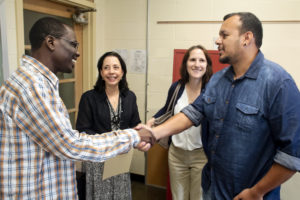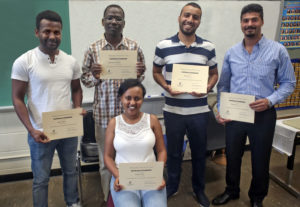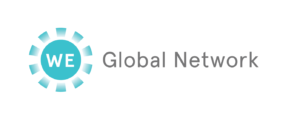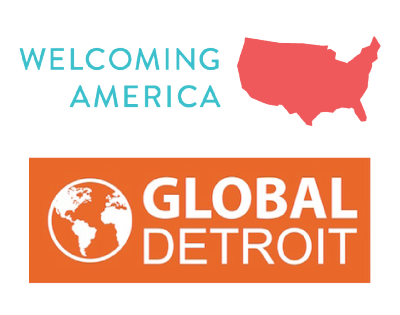WE Innovate: Programs for immigrant professionals Part 1: International Institute of St. Louis tackles brain waste head on
By Beth Szurpicki
This post is the first in a two-part series highlighting two innovations in St. Louis and Philadelphia to support foreign-trained and educated immigrant professionals.
“When I came to the United States I thought that finding a job in my field would be easy. The reality slammed my face: it’s not easy, even if you have enough qualifications.” Irene Contreras’ sentiments are all too common. An immigrant from Venezuela with a bachelor’s degree and five years of experience, Irene couldn’t find a job to put her knowledge to use despite her qualifications.
The unemployment or underemployment of foreign educated and trained immigrants in the United States is a large problem known as “brain waste.” According to the Migration Policy Institute’s 2016 report, Untapped Talent: The Costs of Brain Waste among Highly Skilled Immigrants in the United States, “The pending retirement of many baby boomers, low U.S. birth rates, and the shift toward the knowledge economy are combining to leave many regional economies without the highly-skilled workforce they need to grow and attract business.” Unfortunately, most of the country’s institutions and infrastructure fail to recognize and embrace the skills and potential of the highly-skilled immigrant professionals that could fill those gaps. MPI’s research shows that (as of 2016) 1 in 4 college-educated immigrants, a total of near 2 million workers, are stuck in low-skilled jobs or are unemployed (also showing that they fare worse than their US-born counterparts, for which the number is approximately 1 in 5). This outcome is a real loss to the many talented professionals that struggle to provide for themselves and their families, and is a real loss to the local economy.
Immigrant brain waste is not a new problem, and there are immigrant inclusion strategies in play across the region that you’ve probably heard of: Connector and Professional Networking Programs (featured on page 9 of Welcoming Economies Playbook) including Global Detroit’s Cultural Ambassadors and St. Louis Mosaic Project’s Connectors programs; Upwardly Global’s Professional Licensing Guides and online services; Michigan Office for New Americans, Michigan International Talent Solutions and Michigan’s Professional Licensing Guides; Welcoming Center for New Pennsylvania’s Career Guides for Immigrant Professionals; WES Global Talent Bridge; and Global Talent Idaho.
In this series we highlight two WE Global Network members who have innovated strategies to support immigrant professionals and thwart brain waste in their local community.
Career Advancement for Immigrant Professionals (CAIP)
International Institute of St. Louis

(On left) M. Suliman, an agricultural engineer in his native Sudan, is a recent graduate of the Institute’s Career Advancement for Immigrant Professionals (CAIP) class. Here, he practices his networking conversational skills during a CAIP event. Photo by Wayne Crosslin/International Institute.
Founded in 1919, the International Institute of St. Louis (IISTL) provides comprehensive community integration services to the immigrants of St. Louis, annually serving 7,500 newcomers from 80 countries. IISTL offers a multitude of services for newcomers at any stage in life. In 2013, through these various points of contacts, IISTL noticed a trend: many special immigrant visa holders, the majority from Iraq and Afghanistan, were seeking employment support to help them acquire non-survival jobs commensurate with their education and work experience. To respond, IISTL began with monthly “Onward and Upward” sessions using a curriculum focused on interview skills, learning the social media job search, and resume assistance. The sessions were well attended and demand grew, which set IISTL on a mission to develop a more comprehensive and consistent program with a broadened curriculum to more deeply serve this client.
By 2015 the program was formalized and became Career Advancement for Immigrant Professionals (CAIP) and focused on two primary goals: first, to empower clients to engage in their own job search effectively by teaching them the tools and how to use them. Second, to help clients better understand the U.S. job market for their industry and connect with employment more aligned with their experience.
What is it all about?
IISTL sees self determination at the center of CAIP – empowering folks to guide their own future. This, however, is a future in a new place with foreign systems and cultures, and poses a delicate balance for CAIP clients. In many ways CAIP comes into play when individuals have been facing employment barriers they struggle to overcome, and helps them develop the skills they need to have a breakthrough. IISTL is intentional about being realistic and positive: they provide their clients with options so that they can make informed choices for themselves that will guide them to successively higher rungs of the career ladder.

(From left rear) Y. Mengesha – Electrical and Computer Engineer; M. Suliman – Agricultural Engineer; B. Al Khafaji – Telecommunications/Fiber Optic Splicer; H. Al Tameemi – Computer Network and IT Specialist; and (in front seated) K. Anberber – Civil Engineer. Photo by Wayne Crosslin/International Institute
How does it work?
In 2016, IISTL launched the International Institute Center for Career Advancement (IICCA) to provide additional wrap around support services for foreign-born professionals with university degrees from abroad. Typically clients coming to IICCA begin with finding a job – even if a survival job – so they can start acclimating to U.S. workplace culture while having an income and at the same time work towards their education and career goals. IISTL is intentional about reminding clients that the first job is simply the first step and not an isolated event devoid of linkage to their career aspirations.
Next they move on to Career Pathways services and the development of a realistic path to success based on self-identified goals, education and experience, and realities of US workforce. The plan merges the client’s goals with the expertise of IISTL staff on the realities of the U.S. landscape, including hiring practices, evaluation and credentialing. This plan can include CAIP as one action step on the rung, if it is the right fit for the client.
Once CAIP is determined to be a good step for a client, which is offered to foreign-born professionals with university degrees from abroad, professional work experience, and advanced-level English, they can enroll in the five-week, 16 hour soft-skills training program for international professionals featuring:
- Resume Writing
- Interviews & Professional Communication
- Job Search Tactics & Social Media
- Recertification & Credentialing
- Practical Application & Role-Playing
Class size averages 5 participants so they can provide direct and personal support. Job interview practice sessions include local professionals who evaluate students on presentation skills and demeanor. Upon satisfactory completion of the program, graduates receive a certificate, letter of recommendation and formal connection to mentors who are professionals in their respective fields of interest.
Post-CAIP
IISTL staff provide ongoing support to CAIP graduates, with regular check-ins and assistance navigating their pathway. Additionally, IISTL connects graduates within its volunteer mentor pool of professionals in the community for immediate networking practice, with intentions to maintain momentum right out of the gates. This mentor is a critical extension of IISTL staff that is able to support the individuality of clients through one-on-one interaction.
IISTL’s Workforce Solutions Department also incorporates CAIP graduates into its services, connecting them to open job opportunities and career fairs. Currently they’re developing an email blast approach to disseminating aggregated job openings s to CAIP graduates so they can plug into regional workforce opportunities. Here, IISTL is intentional about assisting clients in their development of skills to find a job themselves – stressing that CAIP is not a job placement program – but instead empowers clients to take the reins.
Partners
CAIP partners with St. Louis Mosaic Project and STL Regional Chamber’s Professional Connector Program to assist their participants with industry-specific networking. The program introduces skilled immigrants and newcomers to St. Louis, from CAIP and elsewhere, to well-known “connectors” for a cup of coffee and career networking referrals. These connectors share insider industry knowledge on the local workforce and companies to watch.
Funding
The program is funded through private foundation dollars, and the business community has been particularly helpful. Tuition costs $489 with scholarships available, which helps cover the program’s instructor costs. Covering the cost of support staff for the CAIP program has been a challenge. However, the award of an ORR Refugee Career Pathways (RCP) grant in October will help offset that cost. With its ORR RCP grant, the Institute will be able to develop and offer a job search skill training similar to CAIP but which is geared to educated refugees with lower level English who have come to the US with skilled or professional-level work experience backgrounds. While the ORR RCP grant services will be focused on only those clients who meet ORR guidelines (e.g. refugees and asylees in US less than five years), the RCP grant funding will expand the Institute’s capacity to provide support for Career Pathway services and career-related skill development including CAIP.
Where is it now?
Since CAIP’s launch in 2016, they have run four cohorts with the goal to average three per year. In 2018, they have exceeded the annual goal by more than double having hosted five cohorts through September with two more cohorts to be completed by the end of the year. In 2018, the program has graduated 19 students representing 16 different countries of origin and a variety of professional backgrounds, including health, engineering, management, computer science, interior design and education.
What’s next?
IISTL operates a two-pronged approach, like many WE Global members: build resources and capacity for clients, and do outreach and advocacy on their behalf to make mainstream systems more accessible and available to them. They are exploring new ways to extend wrap around services while remembering where they’re most valuable and tapping into the local ecosystem to build capacity. They’re working towards more and stronger partnerships with mainstream opportunities for their clients, and focusing more on fostering a more welcoming nature within the services and industries locally.
Additionally, through the Skilled Immigrant Integration Project with World Education Services (WES), they’re creating career pathway guides for nursing (a large industry in St. Louis), engineering (many newcomers have engineering backgrounds), and teaching. Teaching can serve as an alternative career path for individuals uninterested in or unable to return to their field directly. These guides will be applicable to all jobseekers, not only foreign-born.
IISTL is looking towards the future with their clients. They are motivated by the trends they’re seeing in the labor market nationally as employers are focused on identifying new opportunities and pipelines for talent. Further, there are more and more mainstream resources advocating on behalf of foreign-born talent, and an interest in connecting that talent to meaningful employment. IISTL is grateful for the expansion of local entities interested in working with them for a more inclusive St. Louis.
*If you are interested in learning more about CAIP please contact: Anita Barker, VP & Director of Education, at (314) 773-9090 ext. 107 or barkera@iistl.org.



